
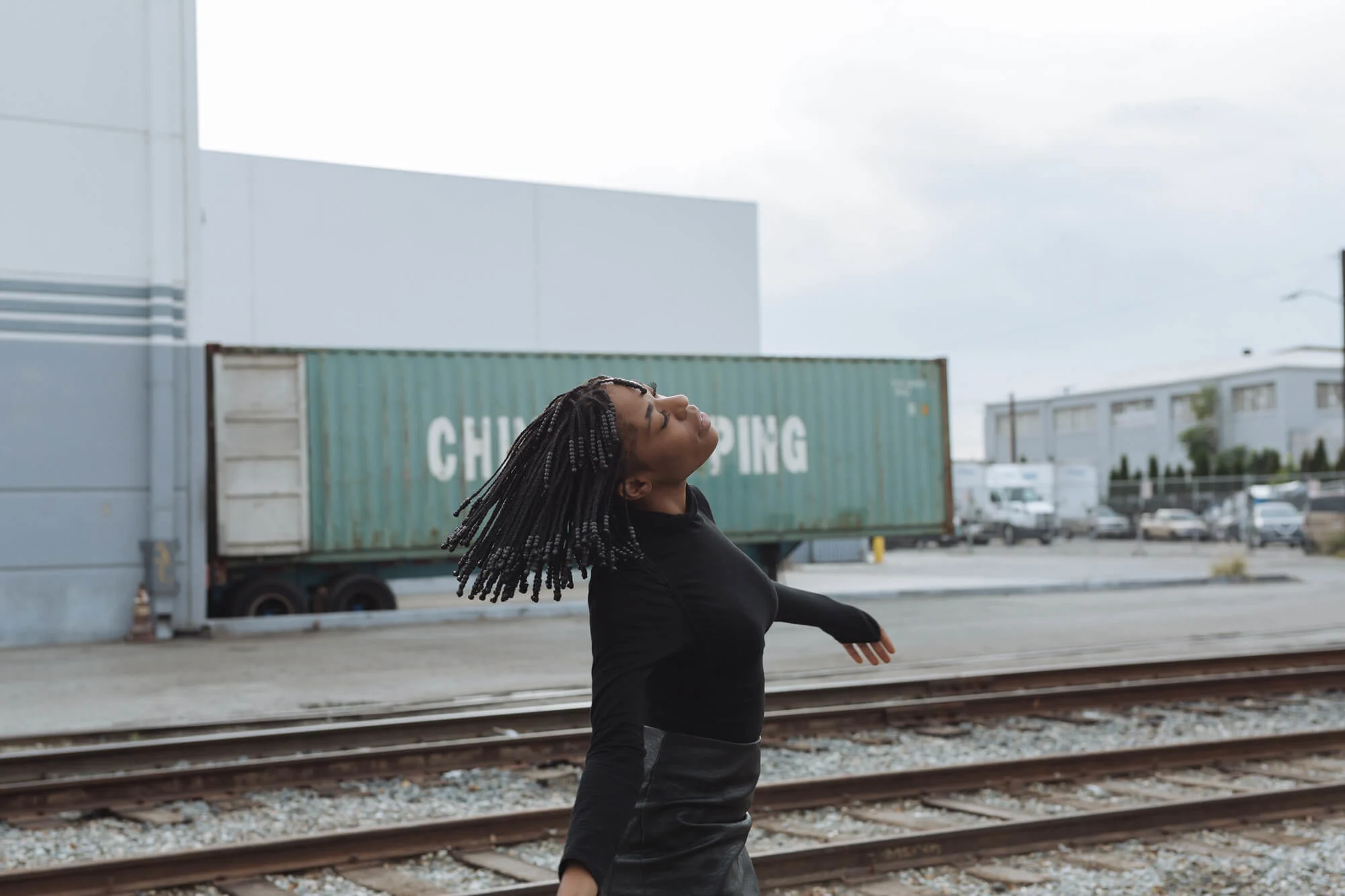
A violin, a Roland SP-404 sampler and a mandolin. It’s an unlikely mix of instruments but one that comes naturally to Sudan Archives, one of the freshest voices in music today.
Sudan tells Andy Hermann how she found her musical voice, by teaching herself instruments, learning from the LA club scene and immersing herself in traditional West African music.
Photography by Kayla Reefer.
The downtown Los Angeles Arts District has become a mecca for the city’s hip young creatives. At the tables outside a cafe on a cool but sunny November afternoon, nearly everyone is fashionably dressed in designer kicks, expensive sunglasses and artfully frayed jean jackets.
But even in this put-together crowd, Sudan Archives stands out. She arrives dressed in head-to-toe black with shiny patent-leather Doc Martens, high-waisted pants and a curtain of black beads that tame her hair — which she usually wears onstage in a prodigious Afro — into neat braids.

Sudan, as everyone calls her — including her boyfriend, rapper Nocando, who joins us for lunch — was born Brittney Parks, a name which now seems preposterously unsuited to her stylish, almost regal bearing.
“I just didn’t like the name Brittney for some reason,” she says. “It’s just not swaggy enough, I guess.” Her mother gave her the nickname Sudan when she was 16, a nod to her daughter’s obsession with African instruments and culture. Growing up in Cincinnati, Sudan would go to Guitar Center to shop for talking drums and thumb pianos or hang out at the local mall’s lone African shop, “buying incense and shea butter and stuff.”
In 2017 she released her self-titled debut EP as Sudan Archives on Stones Throw, an LA label best-known for putting out underground hip-hop and R&B classics by the likes of J. Dilla, Madlib and Georgia Anne Muldrow.
Sudan’s music exists on a continuum with those records, but it’s also something new — a futuristic fusion of African sounds with soul, funk and an electronic palette that seems wholly her own, especially when combined with the hypnotic plucks and drones of her primary instrument, the violin.
Many (like NPR and The Guardian), hailed it as one of that year's best debuts, and the buzz landed her high-profile gigs at Coachella, FORM Arcosanti and opening for Tune-Yards. A second EP, Sink, arrived in May 2018 to similar accolades.
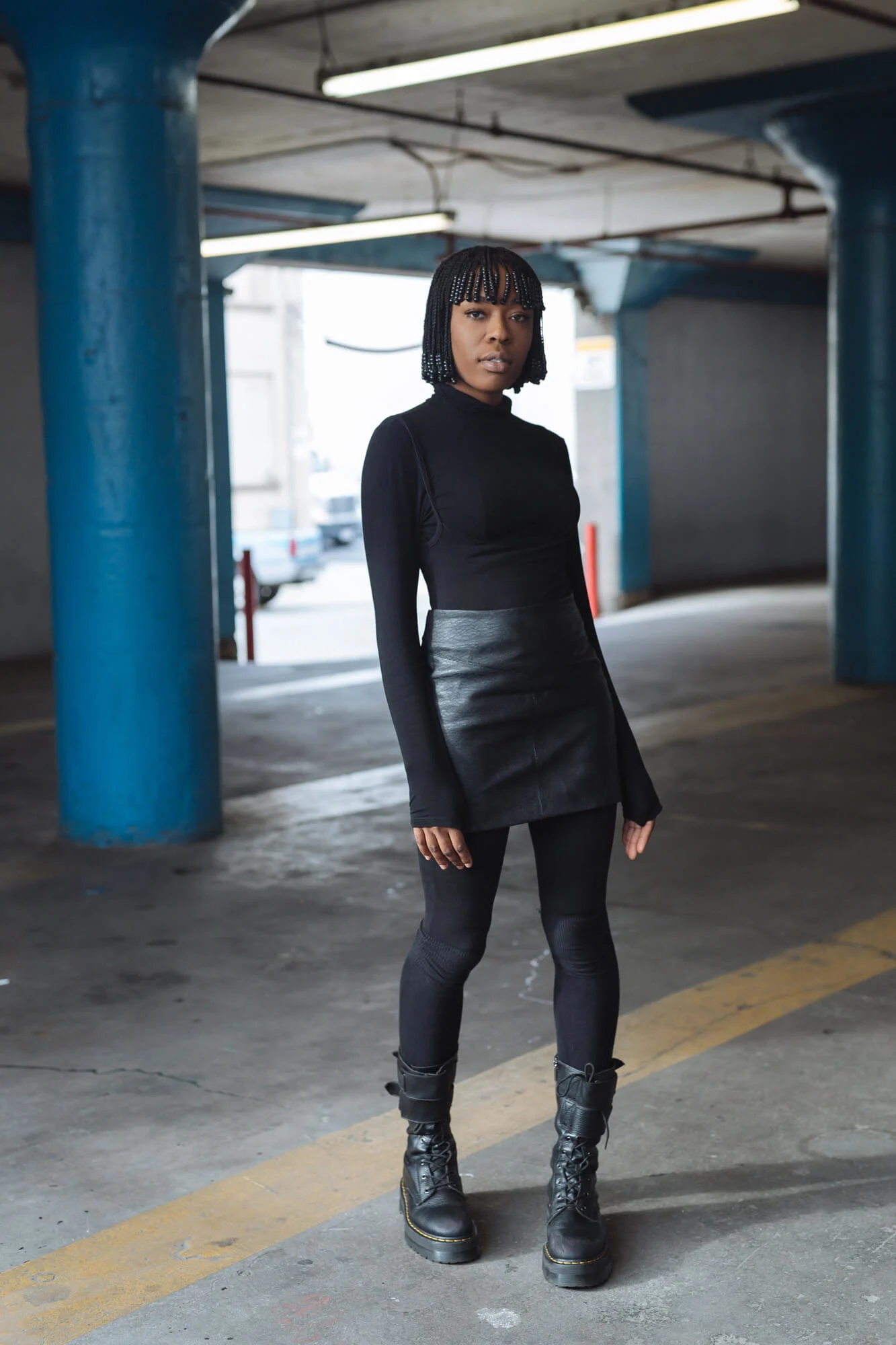
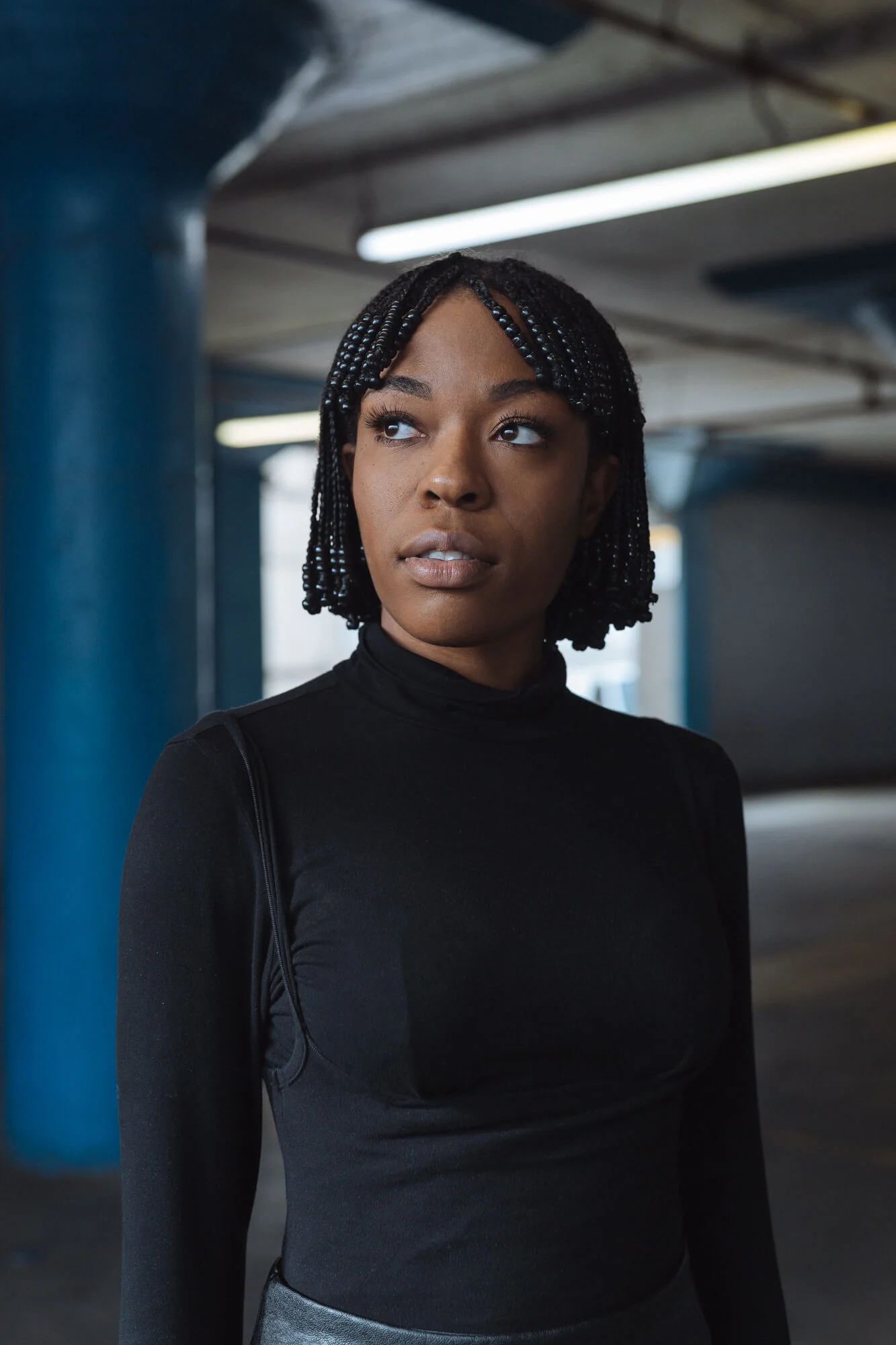
Right now, she’s grinding on her first full-length album in a 24-hour lockout studio space in an industrial part of Boyle Heights. Her only neighbors are bakeries, warehouses and a slaughterhouse for pork products; by day it smells like sausage, at night like cookies.“It’s really empty around there,” says Sudan, who enjoys the isolation.
The goal, she says, is to write 60 songs, then pick her favorites. “I already have 15.” For the album she’s working with outside producers for the first time too. “He makes my violin sound really orchestral,” she says of one of them. “My violins on my other shit kinda sound like bagpipes.”
She’s played the violin since childhood, learning gospel songs by ear so she could play along with her church choir. She never had formal training, nor learned to read music.

When she was 15, her dad left and her mom remarried, bringing a different kind of musical influence into Sudan’s life in the form of Derrick Ladd, her new stepdad. Derrick was a music industry veteran, a longtime associate of LaFace Records co-founders Antonio “L.A.” Reid and Kenneth “Babyface” Edmonds. He had managed their Cincinnati-based R&B group The Deele in the 1980s and he wanted to develop young Brittney’s talent.
“My stepdad kinda planted this idea of me being a musician as a career,” says Sudan. He tried to package her with her twin sister Catherine, first in a girl group called JV and later as a pop duo. Neither really worked, but she played along for a few years. “We were so young and easily manipulated,” she says now. “In both groups, I would just be really goofy and act up. I was really hard to work with.”
At 19, she decided to move to Los Angeles for college but also to get away from her somewhat stifling home life. “When I moved out here, I feel like that’s when I started to have my own taste musically. I never really had my own sonic palette.”
At first, she called herself Sudan Moon, making spacey electro-pop on her iPad, some of which she released on a cassette-only album called Goldencity in 2014. The violin didn’t make an appearance; she hadn’t yet figured out how to incorporate it into her sound.
A chance find at a record store triggered her metamorphosis into Sudan Archives. It was an album called African Electronic Music 1975-1982 by a Cameroonian composer and musician named Francis Bebey.
She bought it on a whim, intrigued by its title and cover art — an image of a smiling, bare-breasted African woman, balancing a set of bowls on her head like an elaborate headdress. Playing it at home, she was immediately entranced by Francis’ ahead-of-its-time mix of squiggly analog synths and clattering African polyrhythms.

Intrigued, she sought out more of Francis’ work. “He’s also an ethnomusicologist, so I read his book on African string music,” she remembers. “I decided to find out about all this African string music, and that’s when I was like, ok, I can play violin and be lit.”
She scoured YouTube for videos of African violinists — many of whom, as coincidence would have it, hailed from Sudan, her namesake country, as well as Ethiopia and various parts of Francis’ native west Africa.
“Where I’m from, I was always the only black girl playing the violin,” Sudan says. “But then when I found all these people; it’s like these lit black people with hella swag just playing it like...” – she mimes bowing a staccato rhythm, her shoulders undulating as she scat-sings – “bom-digga-bom-digga-bom-digga. It was so lit. I was like, yo, I can do this.”

I wanna be always looking out and facing my fears.
Around the same time, she also began going to Low End Theory. Until its closure in 2018, the influential LA club night was ground zero for the city’s fertile commingling of underground hip-hop and experimental electronic music, spearheaded by producers and Low End regulars like Daedelus, Ras G and Flying Lotus.
Though she denies the club had a direct influence on her music — “I just went there to turn up” — she did find inspiration in seeing so many solo artists producing a rich tapestry of sounds with samplers, synths and MPCs . “I just thought it was cool to see people with gear doing stuff, not in a band,” she says. “I’d never seen that before. I was like, that kinda looks fun.
“I was weird. I would do face paint. Back then I was kinda far out,” Sudan says, smiling. “I remember going to the grocery store with face paint on. People were looking at me really weird and I was like, why are they looking at me weird? And that’s when I realized I was on some other shit.”
Armed with an electric violin and a Roland SP-404 sampler, she began playing in public more, now as Sudan Archives — the name change a nod to her newfound interest in ethnomusicology. To conquer her stage fright, she stopped using a laptop and kept her live set up free of any surfaces she can lean on or hide behind.
“I wanna be always looking out and facing my fears,” she says. If she’s feeling nervous, she’ll pick out someone in the audience and try to hold them in her gaze. “I just started staring at motherfuckers. It helped me overcome the fear,” she says, adding with a laugh, “Everybody’s staring at me. I’m gonna stare at y’all too.”
It’s hard to imagine the bewitching figure who took the stage at FORM Arcosanti in 2018. Wearing a black leotard and a shawl-like garment with black sleeves that billowed in the breeze like raven’s wings, she strutted about the stage, triggering beats on the SP-404 and switching between the violin and an electric mandolin that she makes groan and chatter like an Ali Farka Touré guitar solo.

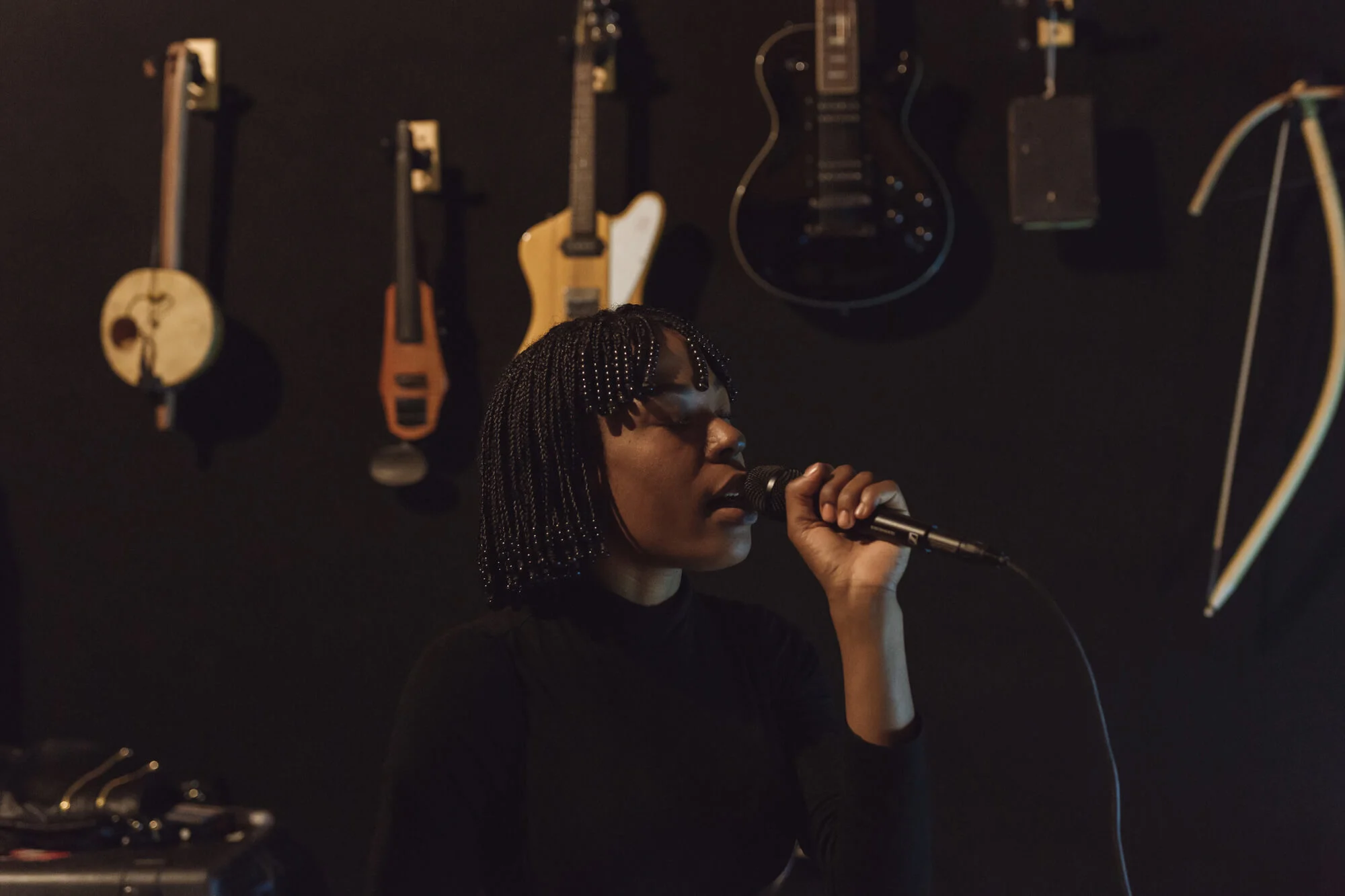
As riveting as her performances can be, Sudan’s still not satisfied with them. “I’m still trying to figure out my live set,” she says. She hopes the material from her forthcoming album can address what she sees as some of its shortcomings. “I kinda want to have some faster songs. ‘Cause a lot of my songs feel like a meditative vibe — kinda trance-y or something. I want it to be more upbeat.”
She’s not satisfied with her songwriting either. Of the songs on her first two EPs, she says, “They’re all just little ideas.” Most exceed the two-minute mark, but not by much. “A lot of it was made on the spot, and after 1:30 I’d be like, alright, I’m done.”

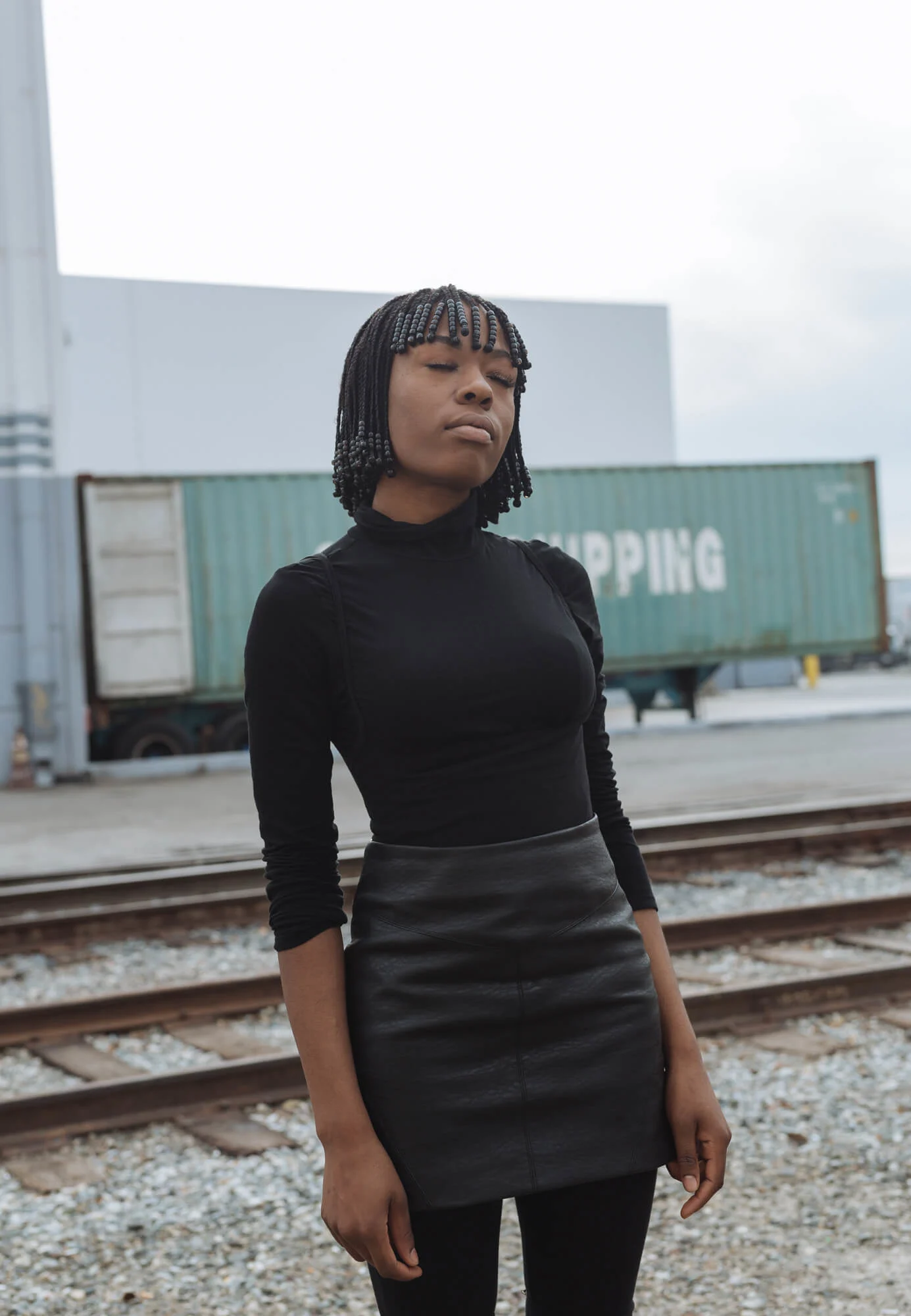
People were looking at me really weird. That’s when I realized I was on some other shit.
Nocando begs to differ. “Everybody thinks good writing is being verbose. So she thinks, I’m not a good writer.” He recalls a recent road trip, during which the couple freestyled in the car, trading verses. “And she was just getting to the point every time. It was punchlines,” he says admiringly. “That’s good writing. I wish I could be a writer like that.”
Though they have yet to collaborate, she points to Nocando, a veteran battle rapper known for his work with highly literate rhyme-slingers like Busdriver and Open Mike Eagle as a positive influence on her craft. “He’s fucking really good at writing and I hate writing,” she says. “So he’s making me better. He’s really pushing me.”

Where Sudan Archives goes from here is anyone’s guess. In a way, she’s barely gotten started; though only in her mid-20s, she carries herself with the quiet confidence of someone much older. But towards the end of our interview she drops a major hint.
“The theme of my album is Queen of the Damned ,” she says, singling out the film’s star, the late R&B singer Aaliyah, as her main inspiration. “I just like the aesthetic of Aaliyah . She’s badass, sucking these niggas’ blood out, killing these motherfuckers.”
She named her latest EP as a way of foreshadowing this darker turn. “It’s called Sink because I’m sinking. I’m sinking below the water where all those ugly-ass fishes are.” She delivers this cryptic last statement like one of those punchline lyrics Nocando described, with an enigmatic half-smile, then falls silent, staring straight ahead.

